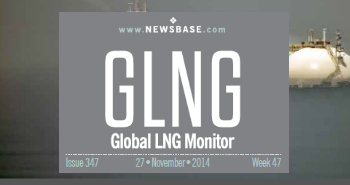Oman and Qatar use NOCs to tap bond markets
Following the recent success of regional powerhouses Abu Dhabi National Oil Co. (ADNOC) and Saudi Aramco in cashing in on investor appetite, Oman and Qatar are set to launch bond sales via state energy firms OQ and Qatar Petroleum (QP).
The two countries are both at the lower end of the Middle East oil production spectrum but have different reasons for the bond offerings, with Qatar intending to use the funds raised to process a giant gas field expansion project, while Muscat seeks to ease the government’s debt burden.
Qatar
QP is seen raising $7-10bn via its debut dollar-denominated bond offering on international capital markets, purportedly to partly finance the $29bn North Field Expansion (NFE) project to solidify Qatar’s position as the world’s largest LNG exporter, according to reports that cited sources close to proceedings.
The world’s largest natural gas exporter has reached out to global investment banks to help arrange the deal. The multi-tranche long-dated bond offering will have maturities of five, 10 and 30 years.
The company took a final investment decision (FID) on the project in early March and has since proceeded to hand out billions of dollars of engineering, procurement and construction (EPC) contracts for NFE and the subsequent North Field South (NFS) expansion phase.
NFE will underpin the expansion of Qatar’s LNG production capacity from 77mn tonnes per year currently to 110mn tpy following the start-up of four new mega-trains with NFS expected to launch in 2027, bringing Qatar’s LNG production capacity to 126mn tpy.
The Qatari government issued a $10bn bond a year ago which was four and a half times oversubscribed.
Meanwhile, last month QP announced that it would not renew the Qatargas Liquefied Natural Gas Company Ltd (QG1) joint venture (JV) when its concession expires at the end of next year, at which point the state-owned firm will take full control.
The current JV arrangement with super-majors Total (10%) and ExxonMobil (10%), as well as Marubeni (7.5%) and Mitsui (7.5%), expires on December 31, and QP will assume full ownership on January 1, 2022, up from its current 65% holding.
Oman
For Oman, the move comes as Muscat prepares to issue an estimated $3bn worth of bonds through the newly formed Energy Development Oman (EDO) to which it has transferred Petroleum Development Oman (PDO’s) majority shareholding in the massive Block 6 concession, home to an oil production capacity of around 650,000 barrels per day (bpd) and more than 75% of the Sultanate’s remaining oil reserves.
Muscat is understood to have been advised on the process by JPMorgan Chase & Co. and EDO is expected to go to market during the next few months with the $3bn target based on the reserves held in Block 6, making it the Middle East’s first reserves-backed raise.
This week an investors’ note showed that state oil firm OQ, formerly Oman Oil Co., has hired eight banks to work on a seven-year, dollar-denominated bond. Calls were due to begin shortly after with Citi, HSBC, JPMorgan, First Abu Dhabi Bank, MUFG, Natixis, SMBC Nikko and Societe Generale for a “benchmark” bond issuance, which is expected to be at least $500mn.
Following the news, Fitch Ratings has assigned the proposed Global Medium Term Note an unsecured BB-(EXP) rating in line with OQ’s BB- long-term issuer default rating (IDR).
It added that “the negative outlook on OQ’s rating mirrors that on Oman’s rating”.




Follow us online